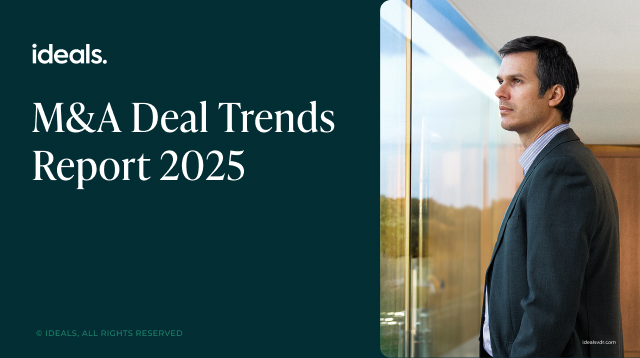In the face of geopolitical tensions and economic headwinds, Israel’s M&A market is once again demonstrating its ability to adapt. Although deal flow remains selective, there are signs of renewed momentum as investors adjust to a complex environment.
At our recent event in Tel Aviv — M&A strategies in Israel: Opportunities and challenges in 2025 — industry leaders explored three trends shaping today’s deals.
The panel featured:
- Amir Shani, Advisory Partner, Deal Advisory at KPMG
- Peter Teishev, Head of Private Equity and M&A at Marsh Israel
- Einat Weidberg, Partner at Shibolet & Co.
- Haziel Bamberger, Managing Director, Head of Technology Investment Banking at Deutsche Bank
This article covers the key themes, and please reach out to the speakers directly if you’d like to discuss them in more detail.
01. Deal structures are evolving
To manage growing risk, dealmakers are increasingly adopting flexible structures like earn-outs, where part of the purchase price depends on post-transaction performance. According to Peter Teishev, this allows investors to “adjust valuations as market realities evolve.”
Equity-based deals are also gaining traction, particularly among mid-size and smaller public companies. These firms are using stock exchanges to fund bolt-on acquisitions, enabling portfolio growth while conserving cash. “It’s difficult to pay cash when valuations are uncertain, so exchanging shares lets the merged company’s market performance determine value,” Teishev explained.
It’s difficult to pay cash when valuations are uncertain, so exchanging shares lets the merged company’s market performance determine value.
Peter Teishev, Head of Private Equity and M&A at Marsh Israel
However, these innovations add complexity. “Whether earn-outs can be insured or not is now a factor shaping deal terms,” Teishev noted. Insurers typically only cover the deal’s closing value, which affects both deal structure and risk allocation.
Amir Shani pointed out that these trends mirror broader patterns in global markets: “Israel’s M&A market is very much correlated with what happens in the US, especially in technology. When the US market slows, we feel it here too.”
02. Investor interest is steady but cautious
Despite the geopolitical backdrop, strategic buyers — especially from the US — continue to show interest. Technology remains a major driver, particularly in cybersecurity and AI, where Israeli startups have long been global leaders.
That said, activity has become more measured. Haziel Bamberger noted, “In the last two weeks, we’ve seen deals put on hold due to the geopolitical situation. Investors say they cannot assess the risks given the news from Gaza.”
Yet, he remains optimistic about the market’s resilience. “There is still very high interest from investors, particularly from US buyers who are coming back into the process faster than European counterparts.”
In the last two weeks, we’ve seen deals put on hold due to the geopolitical situation.
Haziel Bamberger, Managing Director, Head of Technology Investment Banking at Deutsche Bank
Amir Shani highlighted how geopolitical events have influenced dealmaking: “While it’s difficult to separate the impact of the war from the broader market, companies that primarily export have been more insulated. Although travel limitations for international buyers have slowed down processes, deals are still happening.”
While foreign acquisitions in Israeli industrial sectors remain limited, tech continues to draw interest. Bamberger pointed to a rise in add-on deals, as buyers target startups struggling to raise funding: “We’re seeing more opportunistic acquisitions as buyers take advantage of the funding challenges facing early-stage companies.”
However, Bamberger cautioned founders to carefully assess investor terms. “In some sectors like cybersecurity, investors often take a hands-off approach,” he said. “But in others, such as medical devices, investors may require restrictive terms like exclusive distribution rights, which could limit long-term growth.” This means that founders must balance the value of new investment against potential constraints.
03. Execution is under stricter scrutiny
As deals progress, execution risk has become a critical focus, with the panel emphasizing the importance of accurate and defensible due diligence. Thorough preparation before the sale process can be the difference between a successful transaction and one that stalls.
Einat Weidberg stressed the value of early preparation: “It’s crucial to fix any issues as early as possible because unresolved problems tend to worsen over time and complicate the sale.”
She warned against overstating metrics, even in informal discussions: “If you claim next year will bring $200 million annual recurring revenue (ARR) but deliver only $70 million, that undermines credibility and raises concerns about management’s grasp of the business.”
It’s crucial to fix any issues as early as possible because unresolved problems tend to worsen over time and complicate the sale.
Einat Weidberg, Partner at Shibolet & Co.
She recommends proactive vendor due diligence before going to market to ensure all numbers are reconciled and defensible. “Although it adds upfront costs, this delivers significant upside and reduces surprises later,” she said.
Peter Teishev reinforced the growing importance of financial due diligence. “We’re seeing more claims and deal delays tied to financial disclosures. Insurers, often lawyers themselves, scrutinize financial representations intensely.”
He added a striking statistic from Marsh’s data: “Around 40% of all claims under representations and warranties insurance stem from just one financial statement representation.” Teishev’s insights highlight the rigorous examination of financial disclosures — and how even one misrepresentation can delay a deal.
What comes next?
Israel’s M&A market is showing resilience, supported by flexible deal structures and sustained investor interest — particularly from US buyers and within the tech sector.
However, the recent escalation in conflict with Iran has introduced new volatility and will likely impact dealmaking dynamics. As the situation evolves, investors will need to balance caution with adaptability, recognizing that geopolitical developments will shape the pace and nature of dealmaking.





